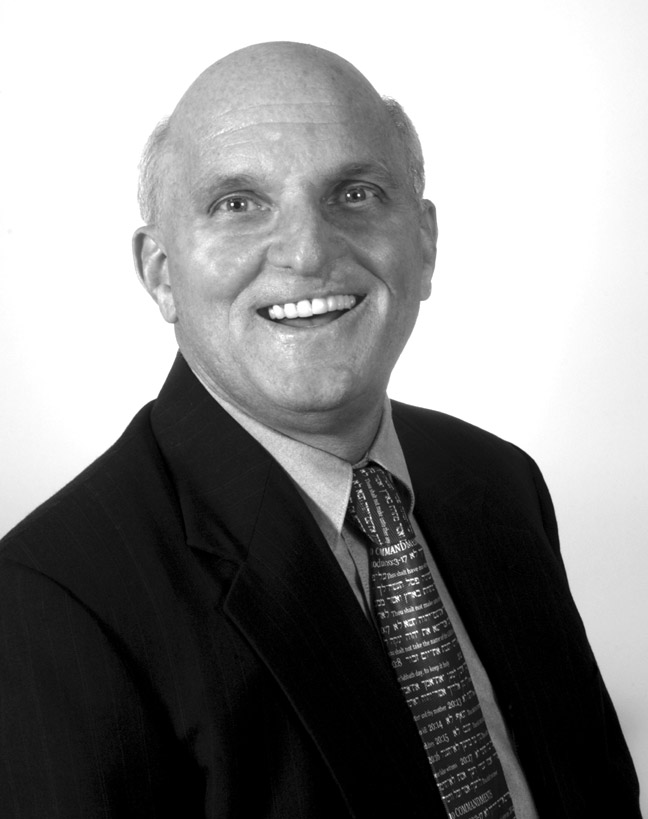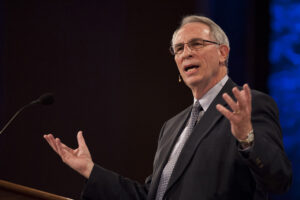
MAYFIELD, Ky. (BP)–I have had a lifelong interest in the 16th president of the United States. Like Abraham Lincoln, I was born in Kentucky, but I was named for his opponent in the 1860 election.
Lincoln lived a life of many contrasts, but the biggest paradox was his complex views concerning his faith. Never did an American President quote the sacred Scripture more than Lincoln, yet he was never baptized. He never joined a church and he always declined requests to publicly explain his views on faith.
Surprising even to many 21st-century Baptists, Lincoln had Baptist roots. Samuel Lincoln, who reached these shores from England in the 1600s, was a Puritan/Congregationalist. The Lincoln family migrated westward and crossed the Appalachian Mountains, where they were exposed to Baptist teaching. Thomas Lincoln, Abraham’s father, joined Baptist churches in Kentucky and later in Indiana. His entire immediate family, with the exception of Abraham, joined the Little Pigeon Baptist Church in Indiana.
Nevertheless, many of the Baptist churches of that era in rural Kentucky and Indiana were extremely Calvinistic and Lincoln was exposed to a theology that focused on predestination and the sovereignty of God. Lincoln never forgot those teachings. For the rest of his adult life, he maintained the “doctrine of necessity” — a very strong view of predestination. Lincoln himself said, “The human mind is impelled to action, or held in rest by some power, over which the mind itself has no control.” Well into the Civil War, he stated: “I claim not to have controlled events, but plainly confess that events have controlled me … God alone can claim it.”
Reflecting his strong sense of the sovereignty of God, Lincoln usually addressed God with formal titles. A favorite title was “The Almighty;” other titles included “Almighty Being” and “Father of Mercies.” Although he rarely invoked the name of Jesus in public, Lincoln’s speeches, such as his “House Divided” speech, frequently quoted sayings of Jesus from the Gospels.
One other legacy of Lincoln’s early Baptist background would be a deep, abiding respect for other people as created in the image of God. Contrary to the thinking of some Baptists in the South on the eve of the Civil War, frontier Baptists in the early 1800s largely rejected slave-owning. When Lincoln was 7, his father moved the family from Kentucky to Indiana, reportedly to live in a free state. Furthermore, these frontier Baptists recognized an egalitarian view of man that dismissed stations in life. Even their clergy refused titles and believers were addressed as “brother” or “sister.” Such sentiments influenced Lincoln to later utter his famous statement that “God must have loved the common people, for he made so many of them.”
As Lincoln grew to manhood, other varied influences crept into his life. The adult Lincoln read widely and admired the writings of 18th-century philosophers. His thinking about formal denominations and religion mirrored the opinions of the Enlightenment philosophers, who rejected them. When running for office, he intimated some sympathy for Christian universalism, but stated that he was not a member of any particular church or denomination.
Lincoln developed some other beliefs and practices that certainly were contrary to his Baptist roots and his background Christian worldview. His rough frontier humor included telling off-color jokes — even during cabinet meetings at the White House. In times of national and personal crisis during the Civil War, he accompanied his wife to visit spiritualists. Although he deeply loved his children, he was an over-indulgent parent. Visitors to the White House thought he exercised little parental discipline over them. Lincoln was not known for public acts of piety, and a woman he once met chided him for “not being a praying man.”
In view of all these paradoxes, was Abraham Lincoln a Christian? Some have thought he made a profession of faith, but those accounts cannot be verified. Certainly, Lincoln’s public utterances became deeply spiritual as the Civil War weighed on him. One month before his death, at his second inauguration, Lincoln formulated the theme that the war was a form of judgment for the United States. He invoked the psalms and the Gospel of Matthew, cited the deity by name seven times and exclaimed, “The judgments of the Lord are true and righteous altogether.” Such insights and sentiments may not have definitively labeled him as a Christian, but he at least conveyed much of the civil Christianity found in many of the public figures of his era. If his faith was not deep, it appeared to be wide.
Today, we can only speculate about Lincoln’s eternal destiny, but Lincoln maintained a Christian worldview his entire life. Although he never became a Baptist, he reflected aspects of his Baptist upbringing to the very end. He was well read in the world’s literature, but always returned to the Bible in his public speeches. As he himself once said, “I have never denied the truth of the Scriptures.” In terms of Lincoln’s Christian worldview, his affinity for quoting and paraphrasing the Scripture and his incredible spiritual insights, few professing Christians today could have matched him.
–30–
Stephen Douglas Wilson is vice-president for academic affairs at Mid-Continent University and a member of the Executive Committee of the Southern Baptist Convention. For important primary sources for the life of Abraham Lincoln in his own words see: Basler, Roy P. (1946), Abraham Lincoln: His Speeches and Writings and Basler, Roy P. (1955), Collected Works of Abraham Lincoln. One of the better biographies of Lincoln is: Donald, David H. (1995), Lincoln.
















